Former J.A.M.I.N. Student Excelling in STEM Fields
Every once in a while, life presents us with heartwarming moments that reaffirm the impact of education. Such was the case when I receive updates or cross paths with former B.A.M. and J.A.M.I.N. students. On my final trip back, former J.A.M.I.N. student and William Knibb Memorial High School alumna Nastacia Linton emerged as a beacon of inspiration. While pursuing her degree, Nastacia has taken on the role of Assistant Librarian at her alma mater — a testament to her dedication to both education and science. I vividly recalled Nastacia’s calm demeanor, her quiet yet inquisitive nature, and her genuine interest in delving deeper into the world of mangroves.
It is with great pride that I shine a spotlight on this exceptional alumnus, who is not only pursuing her own career in science but giving back to her beloved high school. After reviewing Nastacia’s answers from our program evaluation, it should be no surprise that she wanted to pursue a career in STEM education when she said her favorite part of the program was “working in the field, collecting samples, recording data, working more closely with mangroves, and working in their environment.”
Nastacia’s journey serves as a testament to the transformative power of education and the enduring impact of programs like J.A.M.I.N. Join me as we delve deeper into her inspiring path, celebrating her achievements and exploring the ways in which she continues to make a difference in the world of science.
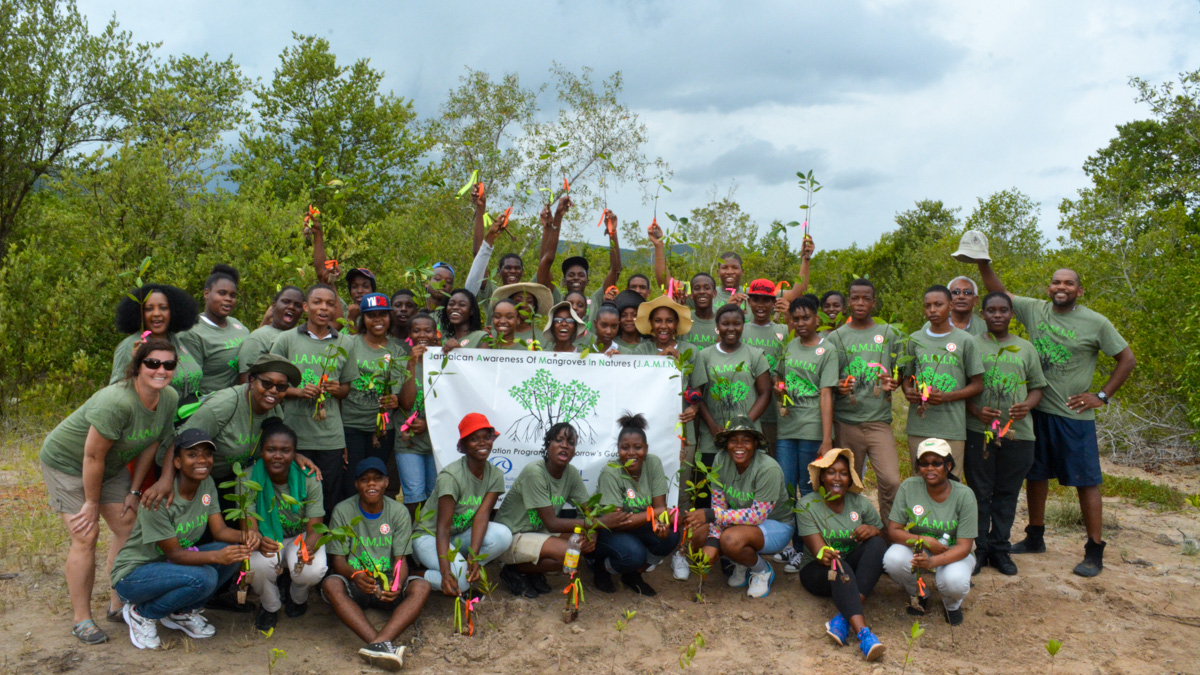
MEET NASTACIA LINTON
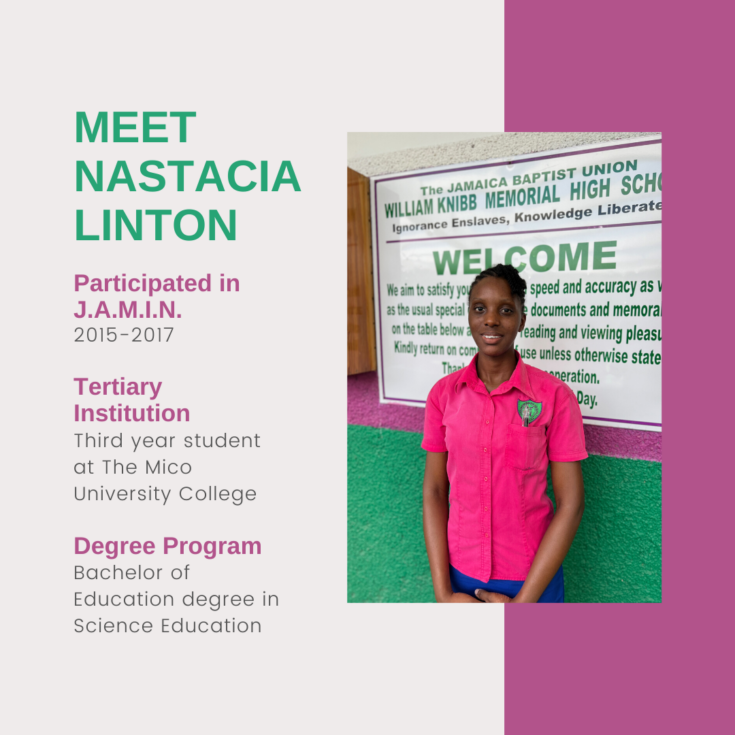
Q: Why do you want to work at William Knibb, your alma mater?
A: The seven years I spent at William Knibb as a student helped to mold me into the woman I am today. I am extremely grateful that I had the privilege of being mentored by some of the best teachers. Therefore, serving at my alma mater is my way of saying thank you.
Q: Did J.A.M.I.N. help to prepare you for your college/university courses? If so, how?
A: Being a part of the J.A.M.I.N. program helped me to develop some key scientific process skills, such as hypothesizing, experimenting, observing, and interpreting data. During the program, my task was to determine whether mangrove seedlings grew best in sand, pebbles, or mangrove mud. By taking on this task, I got the opportunity to carry out all the steps of the scientific method, which required me to use all these process skills. I was later required to demonstrate these skills during my degree program and process skills, which, thanks to J.A.M.I.N., I had already been practicing.
Q: When you reflect on J.A.M.I.N., do you think that it helped you to become more interested in science, and/or do you feel that it helped you to strengthen your interest in science?
A: Participating in the J.A.M.I.N. program caused me to become even more interested in science, especially environmental science.
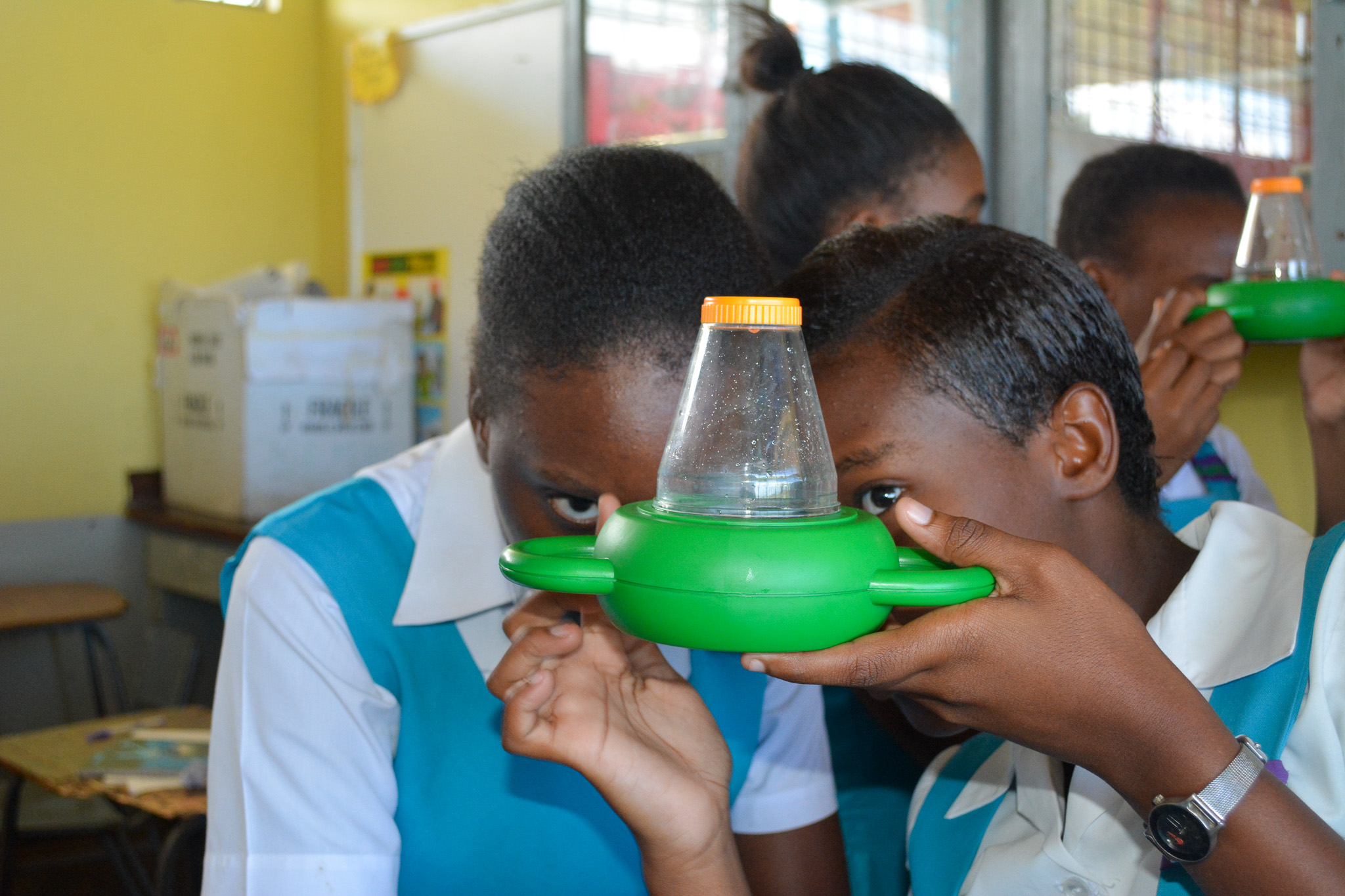
Q: In your own words, explain how participating in J.A.M.I.N. made you feel.
A: I was quite intrigued. I was curious to learn about what made the trees with the rotten egg smell (which was what I thought of them before participating in J.A.M.I.N.) so special.
Q: Do you think that J.A.M.I.N. is important for Jamaican youth to participate in?
A: I think that Jamaican youth should participate in J.A.M.I.N., especially those who have an interest in science. Being a part of this program will help these young scientists to develop key scientific skills. It will also educate them about the importance of protecting, preserving, and restoring mangroves and, by extension, the natural environment.
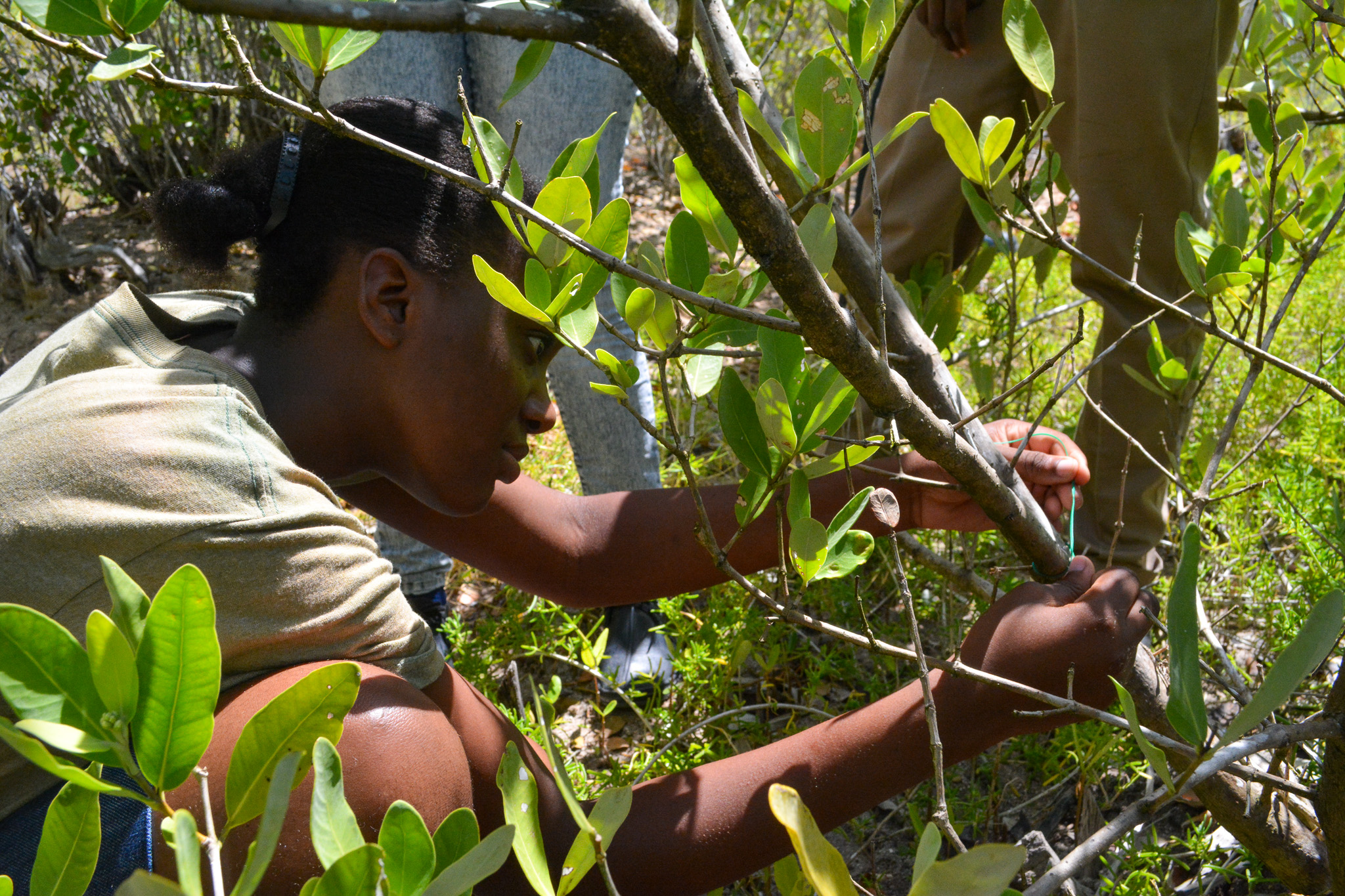
Q: As an adult, do you feel it’s important to preserve and restore mangroves? Did J.A.M.I.N. inform your decision?
A: As an adult and as a citizen of the world, one of my responsibilities is to care for my environment. Being a part of the J.A.M.I.N. program not only strengthened this belief but also helped me to understand why it is important that I care for my environment. I am preserving it for future generations.
Q: What advice would you give to other J.A.M.I.N. students?
A: Being a part of the J.A.M.I.N. program is an invaluable opportunity, so make every moment count. Learn as much as you can and share your knowledge with others.
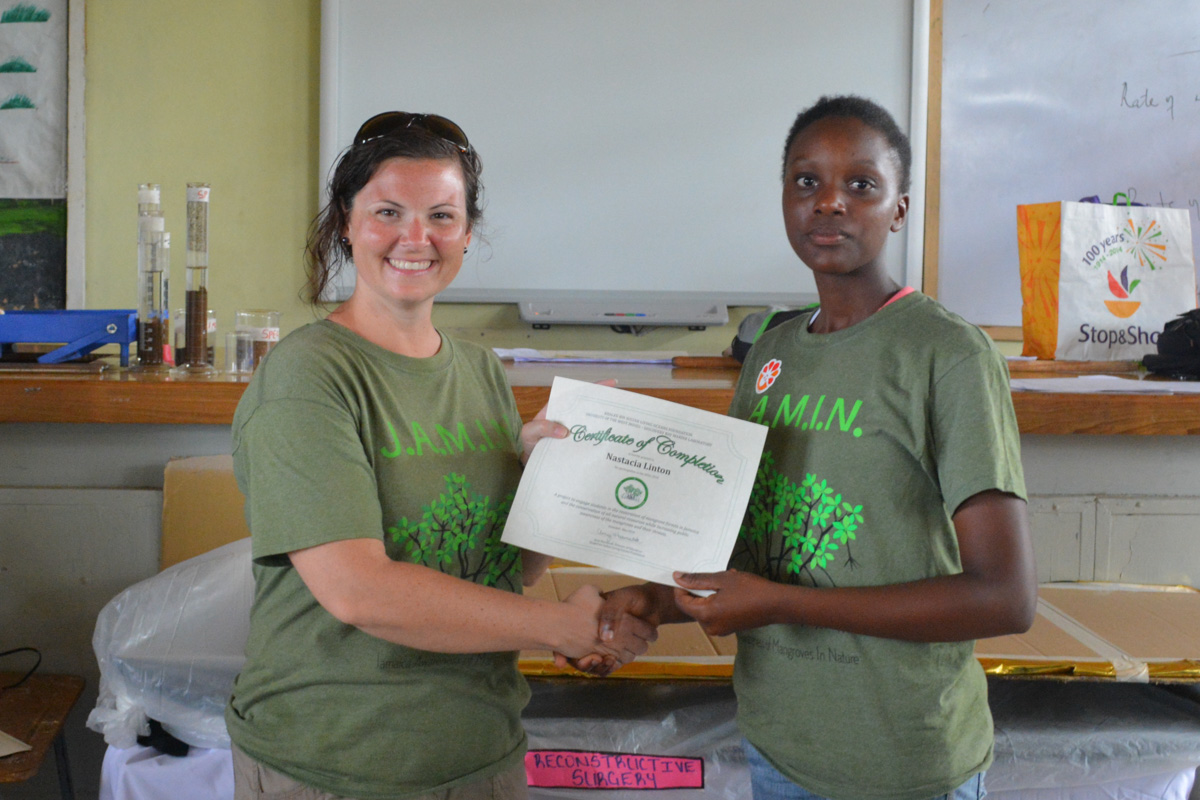
One Comment on “J.A.M.I.N. Alumni Spotlight: Where Are They Now?”
Andrea Robinson- Dunn
Excellent reflection.